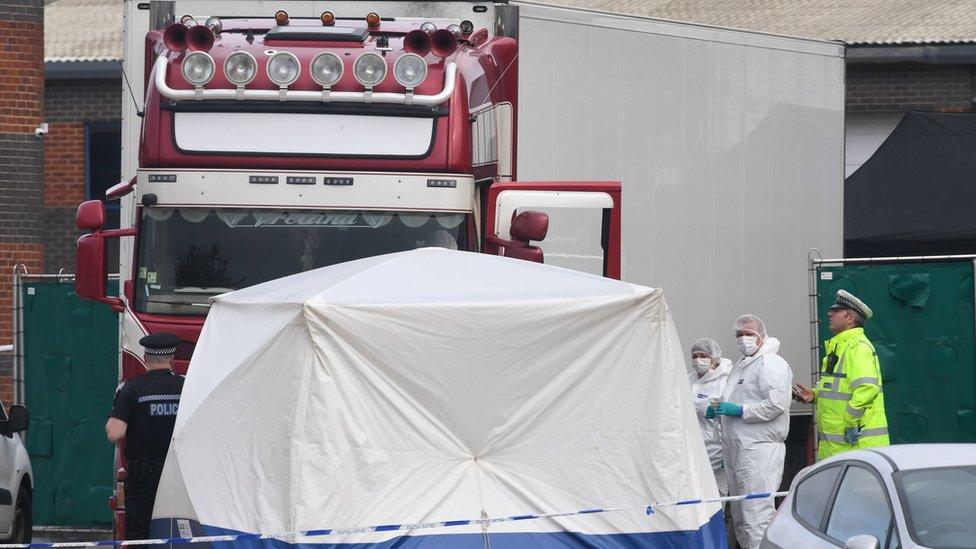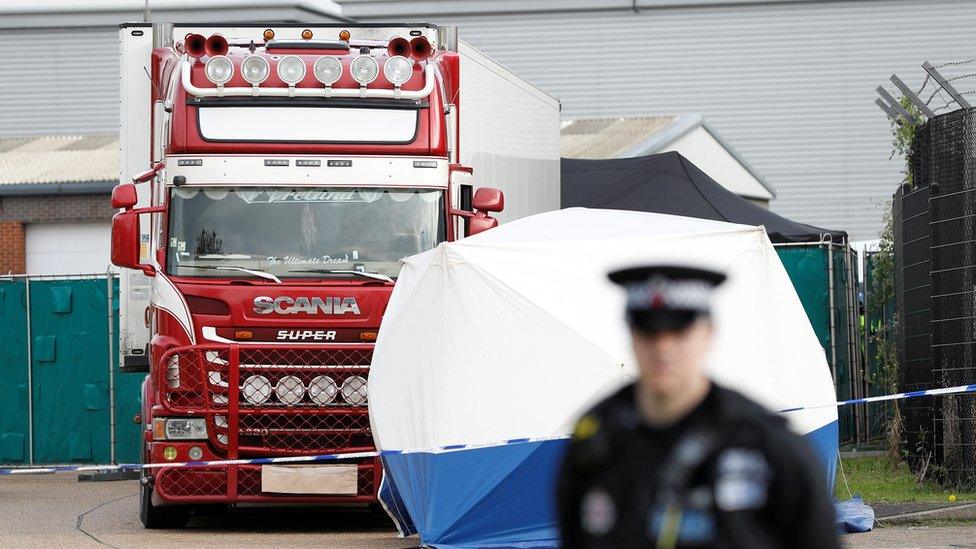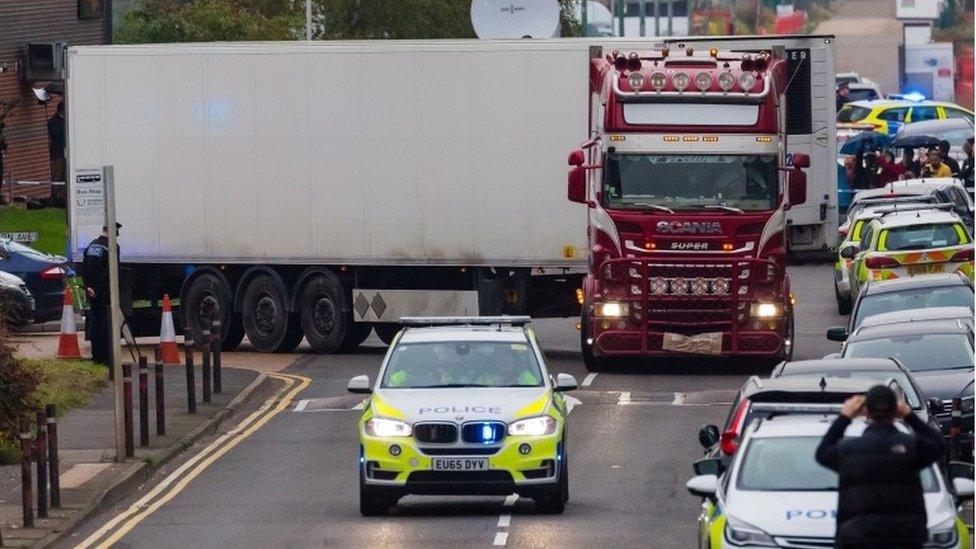Essex migrant lorry deaths should be wake-up call - MPs
- Published

The deaths of 39 Vietnamese people in the back of a lorry in Essex should act as a "wake-up call for the government" over its migration policy, MPs say.
A report from the Foreign Affairs Select Committee says the UK's policy of closing borders drives migrants into smugglers' hands.
Committee chair and Tory MP Tom Tugendhat said the UK should "lead by example" on the issue.
The government said tackling human trafficking is a "major priority".
The bodies of eight women and 31 men were found in a lorry trailer on an industrial estate in Grays on 23 October.
Mr Tugendhat, the MP for Tonbridge and Malling, said the incident had "shocked us all".
He said: "The full story won't be clear for some time but this tragedy is not alone.
"Today, hundreds of families across the world are losing loved ones who felt driven to take the fatal gamble to entrust their lives to smugglers.
"This case should serve as a wake-up call to the Foreign Office and to government."
Meanwhile, police investigating the lorry deaths in Nghe An province said eight people have been arrested in connection with people smuggling.
'Return to EU meetings'
The committee's report, external says the human cost of so-called "irregular" migration - which takes place outside laws, regulations, and agreements - made international partnerships, including with the EU, "essential".
It found UK representatives "have already ceased to attend EU-level meetings where irregular migration is discussed".
The committee called on the government to "urgently resume" its attendance at the meetings during the delay to Brexit and to seek to attend them afterwards "wherever it is possible".


During the 2015 refugee crisis, the UK received asylum applications from just 2% of the 1.4m people on the move.
The UK used two EU deals to keep numbers down: it opted out of an agreement to redistribute refugees and used another rule to send people to other states.
It has a seat in the EU's European Migrant Smuggling Centre, dedicated to gathering intelligence and catching the gangs - and has taken part in naval operations.
But after Brexit, nobody knows if the UK will be allowed to take part in any joint initiatives.
When Helen Wheeler, a foreign office minister, was quizzed by MPs alongside her chief official on Mediterranean migration, she couldn't say if the UK had been at the EU's last key meeting on tackling illegal migration - it hadn't - or whether it would attend the next.

The report finds government agreements to limit irregular migration from certain countries, including Libya, Niger and Sudan, risk "fuelling human rights abuses, and endorsing authoritarian regimes".
The committee adds it is concerned by evidence of "dire conditions" for migrants in northern France, where many of those intending to reach the UK gather.
It says the government's focus on security at ports there "has pushed migrants to take more dangerous routes" to the UK.

Pham Thi Tra My and Nguyen Dinh Luon are feared to be among the lorry death victims
One witness tells the committee that enhanced security had led to an increase in people trying to get to Britain on small boats across the English Channel.
The committee also says the government should consider "wider, interlinked factors" driving irregular migration "including climate change, conflict, repressive governance and corruption - rather than focusing narrowly on reducing the numbers reaching Europe's borders in the short term".
Calais migrants caught on camera trying to reach the UK - This video has no sound
Other recommendations include the expansion of legal pathways to apply for asylum outside Europe.
A government spokesperson said: "Tackling the scourge of human trafficking at every stage of the migrant journey - overseas, at our borders and in the UK - is a major priority.
"The UK does this by addressing irregular migration, from reducing factors driving migration - conflict, instability and poverty - to strengthening border security and counter-trafficking operations.
"The UK government and law enforcement agencies work extensively with international partners, key transit countries, and the nations of origin to stand up to this global criminal industry that perpetuates human suffering."
- Published23 October 2019

- Published26 October 2019

- Published3 November 2019

- Published4 November 2019
